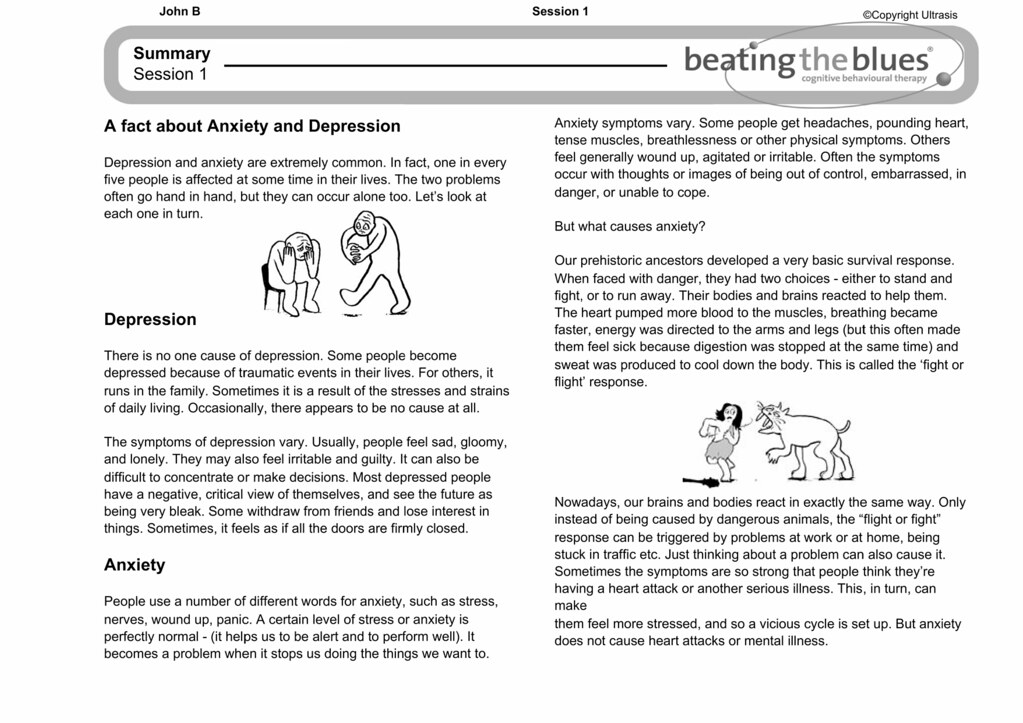Are you tired of trying endless diets and workout routines without seeing the results you desire? Do you feel like your body is holding you back from living your best life? If so, it’s time to consider a different approach. we explore a unique avenue towards achieving your ideal body – therapy. Yes, you read that right. Therapy can be a powerful tool in helping you achieve the physical transformation you’ve been striving for. Read on to learn more about how this unconventional method can help you become the best version of yourself.
Understanding the Connection Between Therapy and Weight Loss
Slim me is not just about physical transformation but also mental and emotional. Therapy can be a powerful tool to help you achieve your ideal body as it addresses the root causes of weight gain such as emotional eating, negative body image, and underlying mental health issues. A therapist can provide you with a safe space where you can explore your relationship with food and your body without judgment.
Therapy sessions may involve talking through difficult emotions that trigger binge-eating or unhealthy food choices. It may also include identifying patterns in behavior to better understand how certain situations affect our eating habits. A therapist may use techniques like cognitive behavioral therapy (CBT) or mindfulness practices to teach new coping mechanisms.
By addressing emotional issues first, we are more likely to sustain positive changes for the long-term rather than relying on fad diets or quick fixes. The connection between therapy and weight loss is a holistic approach that involves changing not just our bodies but also our minds and hearts towards ourselves.
How Therapy Can Help You Overcome Emotional Eating Habits
Emotional eating habits can be a major obstacle to achieving your weight loss goals. Therapy can help you identify the root causes of these habits and develop strategies to overcome them. Through therapy, you can learn to recognize triggers that lead to emotional eating and develop alternative coping mechanisms. This may involve learning relaxation techniques, practicing mindfulness, or finding new ways to manage stress. Your therapist can also help you explore any underlying emotional issues that may be contributing to your eating habits, such as anxiety or depression. By addressing these issues in therapy, you can develop a healthier relationship with food and improve your overall well-being. With the help of a therapist, you can break free from the cycle of emotional eating and achieve lasting weight loss success.

The Role of Mindfulness in Achieving Your Ideal Body
Mindfulness is a key component in achieving your ideal body through therapy. By practicing mindfulness, you become more aware of your thoughts and emotions, which can help you identify triggers for overeating or unhealthy habits. Mindfulness also helps you stay present in the moment, allowing you to fully enjoy healthy meals and physical activity without distractions. A therapist can guide you through mindfulness exercises and teach you how to incorporate them into your daily routine. By being more mindful, you can make better choices for your body and achieve long-term weight loss success.

Using Cognitive Behavioral Therapy to Change Negative Thought Patterns About Your Body
Cognitive Behavioral Therapy (CBT) is an effective form of therapy to help individuals change negative thought patterns about their bodies. CBT focuses on identifying and challenging negative beliefs, such as “I’ll never be thin enough,” and replacing them with more positive affirmations like “I am taking steps towards a healthier body.” This process helps reshape the way people think about themselves, leading to a happier and more confident self-image.
A therapist trained in CBT can work with you to identify your negative thoughts and develop strategies for challenging them. They may also use techniques such as exposure therapy or relaxation exercises to help reduce anxiety around body image issues.
It’s important to note that CBT is not a quick fix solution – it requires time, effort, and commitment from the individual seeking treatment. But with regular sessions and practice outside of therapy, many people have found success in changing their self-talk and improving their overall well-being.
The Benefits of Group Therapy for Weight Loss Support
Group therapy is an effective way to get support and accountability on your weight loss journey. In a group setting, you can share your experiences, struggles, and successes with others who understand what you’re going through. Weight loss support groups can provide a safe space for members to express themselves without fear of judgment or shame.
Group therapy also helps individuals develop coping strategies, problem-solving techniques, and interpersonal skills that are essential for maintaining long-term weight loss success. It offers a sense of community and belonging that can help people feel less isolated in their struggles with food and body image.
In addition to providing emotional support, group therapy offers practical tips such as meal planning ideas and exercise routines from other members who have already achieved success. The therapist facilitates the discussion but doesn’t necessarily act as an expert; instead, they encourage conversation among patients while ensuring everyone gets equal time to speak.
Overall, group therapy serves as an excellent supplement or alternative to individual therapy alone. It provides valuable insights into how others cope differently when faced with similar obstacles related to food choices or cravings.
How to Identify and Address Underlying Mental Health Issues That Affect Your Weight
Identifying underlying mental health issues is crucial in achieving long-term weight loss success. Many people turn to food as a coping mechanism for stress, anxiety, depression, or trauma. A therapist can help you identify these underlying issues and develop strategies to address them. For example, if you struggle with anxiety, your therapist may teach you relaxation techniques to reduce stress and prevent emotional eating. If you have a history of trauma, your therapist may help you process those experiences and find healthier ways to cope. By addressing these underlying issues, you can break the cycle of emotional eating and develop a healthier relationship with food and your body. Remember that weight loss is not just about diet and exercise – it’s about addressing the root causes of unhealthy habits and creating lasting change.
Overcoming Body Image Issues Through Talk Therapy
It’s no secret that our society puts a lot of pressure on individuals to look a certain way. This can lead to body image issues, which can ultimately affect our mental health and well-being. Talk therapy is one form of therapy that can help individuals overcome these issues.
Through talk therapy, you’ll have the opportunity to explore your feelings about your body in a safe space. Your therapist will work with you to identify negative thought patterns and behaviors around food and exercise. Together, you’ll develop coping strategies for managing these thoughts and behaviors.
It’s important to note that overcoming body image issues isn’t an overnight process – it takes time and patience with yourself. With the support of a skilled therapist, however, you’re likely to see progress over time.
Don’t let negative self-talk consume your life any longer – seek out talk therapy today as part of your journey toward achieving your ideal body!

The Importance of Self-Care in Achieving Your Weight Loss Goals
Self-care is an essential component of achieving your weight loss goals. When you take care of yourself, you are more likely to make healthy choices and stick to your plan. A therapist can help you identify self-care practices that work for you, such as getting enough sleep, practicing relaxation techniques, or engaging in enjoyable activities. They can also help you address any underlying mental health issues that may be affecting your ability to care for yourself. By prioritizing self-care, you can reduce stress and anxiety, which can lead to emotional eating and other unhealthy habits. Remember that self-care is not selfish; it is necessary for your overall well-being. With the help of a therapist, you can develop a personalized self-care plan that supports your weight loss journey and helps you feel your best both physically and mentally.

Creating a Sustainable Weight Loss Plan with the Help of a Therapist
The Role of Therapy in Creating a Sustainable Weight Loss Plan
Therapy can play a crucial role in creating a sustainable weight loss plan that works for you. With the help of a therapist, you can identify the root causes of your unhealthy habits and develop strategies to overcome them. Together, you can make realistic goals and develop an action plan that fits into your lifestyle. Additionally, therapy provides accountability and support as you work towards achieving your weight loss goals. By addressing underlying emotional issues and developing healthy coping mechanisms through therapy, you are better equipped to maintain long-term success in weight management.
Identifying Emotional Triggers: How Therapy Can Help You Overcome Mental Barriers to Weight Loss
emotional triggers and mental barriers
A therapist can help you identify the emotional triggers that lead to unhealthy eating habits. By understanding the root cause of these triggers, together, you can develop a plan for managing them effectively. A common mental barrier is negative self-talk about body image or weight loss progress, which can result in feelings of shame or guilt when making food choices. Through therapy, you can learn how to reframe negative thoughts and adopt more positive self-talk patterns. With better management of emotional triggers and shifting mindset from negativity to positivity through cognitive-behavioral techniques, creating a sustainable weight loss plan becomes achievable with long-lasting results.
Establishing Realistic Goals: A Collaborative Approach with Your Therapist
Establishing realistic goals that align with your overall mental and physical health is crucial for achieving sustainable weight loss. Collaborating with a therapist can help you set achievable targets based on your unique circumstances, preferences, and capabilities. By considering factors such as your current diet, lifestyle habits, motivation levels, and past weight loss experiences, you can work together to create a personalized plan that takes into account any potential challenges or setbacks. With regular check-ins and adjustments along the way, you can maintain momentum towards a healthier body while also building resilience against self-sabotage or discouragement.
Building a Support System: Why Group Therapy is Key to Long-Term Success
Building a strong support system is essential for long-term success in weight loss. Group therapy provides the much-needed support and accountability that can help you stay on track with your goals. In group therapy, you get to interact with people who are going through similar struggles and share ideas, experiences, and advice. This creates a safe space where everyone can speak freely without judgment or fear of ridicule. The group facilitator also ensures that discussions are focused on constructive feedback, helping each member set achievable goals, and addressing underlying mental health issues that may be impacting their progress. By being accountable to the group members, you’ll feel motivated to keep working towards your ideal body goal.
Celebrating Non-Scale Victories: Why Therapy Can Help You Focus on More Than Just the Numbers
Non-scale victories are just as important as hitting a certain number on the scale. Therapy can help you shift your focus from weight loss alone to other tangible achievements like feeling stronger, more energetic, or mentally clearer. These small wins can motivate you to keep going and make healthier choices that benefit your overall well-being.
By celebrating non-scale victories with your therapist, you can learn how to identify and appreciate progress in all areas of life, not just weight loss. For example, if you were once too shy to go for a jog outside but now feel confident enough to do so regularly, it’s worth acknowledging that achievement regardless of any changes in body composition.
Ultimately, therapy provides a safe space where accomplishments big and small are recognized for their value beyond what shows up on the scale. This shift in perspective allows for greater self-acceptance and resilience through setbacks or plateaus. Letting go of an obsession with the numbers helps create a sustainable lifestyle change rather than one driven by short-term weight loss goals alone.
therapy can be a powerful tool in achieving your weight loss goals. By addressing underlying emotional and mental health issues, learning mindfulness techniques, and changing negative thought patterns, you can create a sustainable plan for achieving your ideal body. Group therapy and talk therapy can provide invaluable support and help you overcome body image issues. Remember to celebrate non-scale victories and prioritize self-care throughout your weight loss journey. With the help of a therapist, you can achieve not only a slimmer body but also a healthier mind and spirit.
